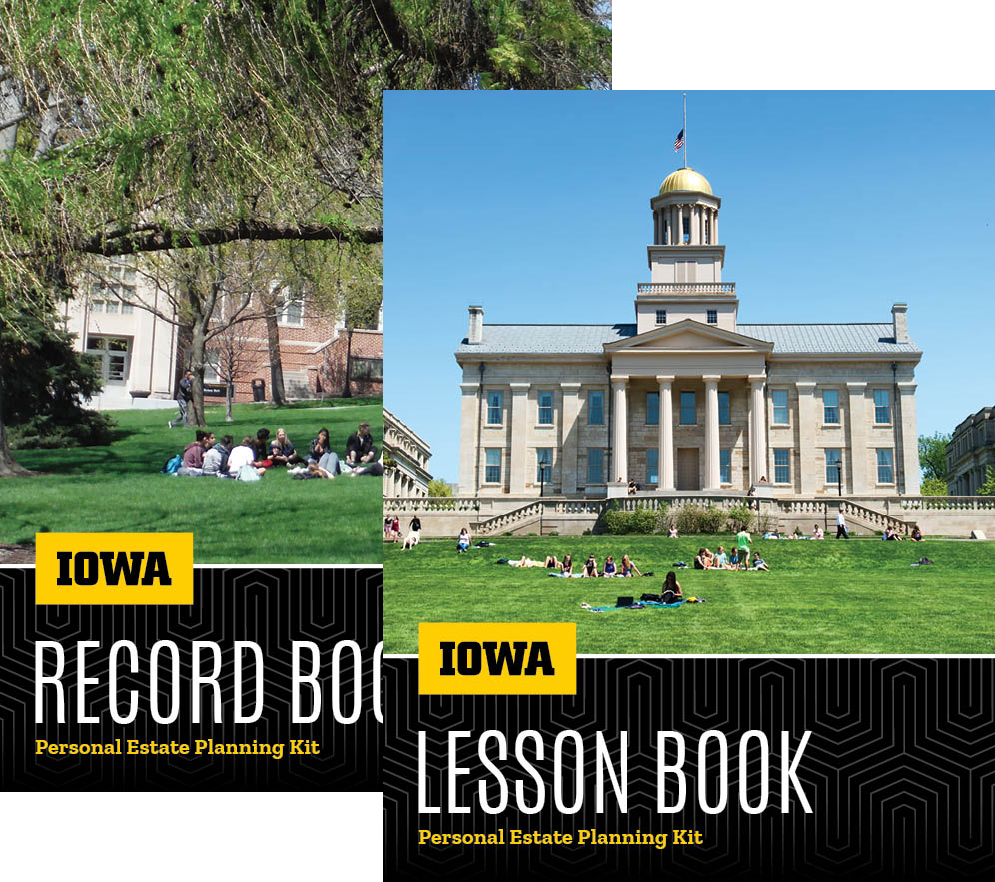
Our Top Free Resource
This comprehensive estate planning kit helps you protect your family and establish your legacy. FREE!
Download My Kit
Transforming Realty to Gift Reality
Want to make a gift to the University of Iowa without touching your bank account? Consider giving us real estate, such as a personal residence, vacation home, farm, commercial property, or undeveloped land. Such a generous gift helps us continue our work for years to come. And a gift of real estate also helps you. When you give the University of Iowa appreciated property you have held longer than one year, you qualify for a federal income tax charitable deduction and you may minimize or eliminate capital gains tax. And you no longer have to deal with that property's maintenance costs, property taxes, or insurance.
Another benefit: You don't have to hassle with selling the real estate. You can deed the property directly to the University of Iowa or ask your attorney to add a few sentences in your will or trust agreement.
You can give real estate to the University of Iowa in the following ways:
When you make a gift today of real estate you have owned longer than one year, you qualify for a federal income tax charitable deduction equal to the property's full fair market value. This deduction lets you reduce the cost of making the gift and frees cash that otherwise would have been used to pay taxes. By donating the property to the University of Iowa, you also eliminate capital gains tax on its appreciation.
A gift of real estate through your will or living trust allows you the flexibility to change your mind and the potential to support our work with a larger gift than you could during your lifetime. In as little as one sentence, you can ensure that your support for the University of Iowa continues after your lifetime.
When you transfer real estate to your donor advised fund, you avoid capital gains taxes and qualify for a federal income tax deduction based on the fair market value of the property when you itemize your taxes.
Are you tired of the hassles of maintaining your property such as paying taxes, utilities, and repair bills? Consider donating the property to the University of Iowa in exchange for reliable payments for life for you (and someone else, if you choose). When you arrange a charitable gift annuity, you receive a federal income tax charitable deduction in the year you set up the gift annuity when you itemize on your taxes. If you use appreciated real estate to make a gift, you can usually eliminate capital gains tax on a portion of the gift and spread the rest of the gain over your life expectancy. A gift of unmortgaged property to fund a deferred gift annuity is preferable and generates the greatest tax benefit.
Perhaps you like the tax advantages a gift of real estate to our organization would offer, but you want to continue living in your personal residence for your lifetime. You can transfer your personal residence or farm to the University of Iowa but keep the right to occupy (or rent out) the home for the rest of your life. You continue to pay real estate taxes, maintenance fees, and insurance on the property. Even though the University of Iowa would not actually take possession of the residence until after your lifetime, since your gift cannot be revoked, you qualify for a federal income tax charitable deduction for a portion of your home's value.
You can contribute any type of appreciated real estate you've owned for more than one year, provided it is unmortgaged, in exchange for an income stream for life or a term of up to 20 years. The donated property may be a residence (a personal residence must be vacant upon contribution), undeveloped land, a farm, or commercial property. Real estate works well with only certain variations of charitable remainder trusts. Your estate planning attorney, who will draft your trust, can give you more details.
When you make a bargain sale, you sell your property to our organization for less than what it is worth. The difference between the actual value and the sale price is considered a gift to the University of Iowa. A bargain sale can be an effective way to dispose of property that has increased in value, and it is the only gift that can give you a lump sum of cash and a charitable deduction (when you itemize) at the same time.
This gift can be a wonderful way for you to benefit the University of Iowa and simultaneously transfer appreciated real estate to your family tax-free. You should consider funding the charitable lead trust with real estate that is income-producing and expected to increase in value over the term of the trust.
A gift of real estate may be a perfect way to honor your loved one in perpetuity. When you make an endowed gift of real estate, your contribution is invested with and becomes part of our endowment. An annual distribution is made for the purpose you designate. Because the principal remains intact, the fund will generate support in perpetuity.
 Janet purchased a rental property years ago and has watched it grow steadily in value. Still active in her career and traveling frequently, she is beginning to find management of the property more and more of a hassle. Janet sees this as an opportunity to give her rental property to a charity that is important to her while realizing valuable tax benefits.
Janet purchased a rental property years ago and has watched it grow steadily in value. Still active in her career and traveling frequently, she is beginning to find management of the property more and more of a hassle. Janet sees this as an opportunity to give her rental property to a charity that is important to her while realizing valuable tax benefits.
Janet avoids capital gains tax on the appreciation and qualifies for a federal income tax charitable deduction for the property’s fair market value. Janet loves knowing that the gift of her property will make a big difference supporting our mission.

This comprehensive estate planning kit helps you protect your family and establish your legacy. FREE!
Download My KitLearn more about the many ways to use real estate to support the University of Iowa in the FREE guide Ways to Donate Real Estate.

This comprehensive estate planning kit helps you protect your family and establish your legacy. FREE!
Download My Kit